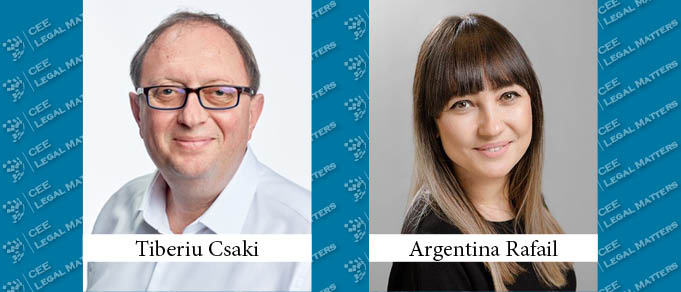Against the backdrop of Russia’s armed invasion of Ukraine, the Council of the European Union has issued Decision no. 382/2022, which establishes the existence of a mass influx of displaced persons from Ukraine and introduces temporary protection. This Decision was published in the Official Journal of European Union on March 4, 2022.
Romania subsequently issued Government Emergency Ordinance no. 20/2022 (“GEO 20”), which was published in the Official Gazette on March 8, 2022. The Ordinance became effective on March 11.
While this sets out the general framework for providing support and assistance to those displaced, many of the implementing mechanisms remain to be put in place, as noted below. We will keep you informed of future developments in this regard. The main measures provided by GEO 20 include the following:
1. Employment
Ukrainian citizens can work in Romania on the basis of a full-time individual work agreement without the need for a work permit (in Romanian aviz de angajare) and without observing the nine-month period in a year limit for an employment agreement, as under the normal rules.
In addition, the right of residence for work purposes is extended without the need to obtain a long-stay working visa.
Ukrainian citizens from the armed conflict zone of Ukraine who do not have documents proving their professional qualifications or work experience required for a job may be hired for a period of 12 months with the possibility of extending that by six-month periods for up to one year, on the basis of an affidavit stating that (i) they meet the conditions of professional qualifications and work experience required for the job they are to be hired for and (ii) they do not have a criminal record incompatible with the activity they intend to carry out in Romania. The affidavit is not applicable to some professions, such as doctors, dentists, pharmacists, general medical assistants, midwives, veterinary surgeons, architects, etc.
The above provisions apply to those who are not seeking any form of protection (e.g. asylum) in Romania and in cases of labor agreements concluded directly with Romanian employers.
For Ukrainian citizens, who have obtained asylum or subsidiary protection (if the conditions for qualifying as refugee are not met, in respect to whom there are reasonable grounds for believing that, if returned to his / her country of origin or country of former habitual residence, would be exposed to a serious life / integrity risk), access to the Romanian labor market is guaranteed under the same conditions as for Romanian citizens.
2. Medical assistance
Ukrainian citizens and stateless persons from the armed conflict zone of Ukraine have the right to receive free emergency medical care and qualified first aid treatment through the national healthcare system. They further have the right to be included in national public health programs.
3. State aid
Individuals hosting foreign citizens or stateless persons coming from the area of the armed conflict in Ukraine, benefit from the reimbursement of food expenses amounting to 20 lei (approx. €4) per person hosted per day. The reimbursement mechanism for this is yet to be established by Government decision.
4. Unaccompanied minors’ regime
Unaccompanied minors - foreign citizens or stateless persons under the age of 18 who arrive in Romania unaccompanied by a parent, other legal representative or who are not under the legal supervision of another person - benefit from protections granted by applicable legislation regarding the protection and promotion of children’s rights.
5. Persons with disabilities’ regime
People with disabilities, either accompanied or unaccompanied, may benefit, upon request, from the same social protection services provided by law for Romanian citizens: sheltered housing, independent living training centers, habilitation and rehabilitation centers, care and assistance, respite / crisis centers. Their attendants will also benefit the aforementioned social services. The procedure for providing social services is to be established by an order of the President of the National Authority for the Protection of the Rights of Persons with Disabilities.
6. Care for the elderly and infirm
Those displaced persons who are elderly, with reduced mobility or who are in a situation of dependency, may benefit free of charge, upon request, from the social services set out in the Law on Social Assistance for the Elderly.
Adults with disabilities and elderly persons with reduced mobility or in a situation of dependency, who do not have valid identity documents, are referred to the General Inspectorate for Immigration, which will establish the legal regime. This occurs at the same time such persons are taken in, upon request, by the public social assistance service at county or local level that will provide the social services.
7. Education
Ukrainian children within Romania - including those who do not apply for protection under the Romanian Asylum Law - have the right to education in Romanian educational institutions, under the same conditions and from the same budgets as Romanian children attending preschool, kindergarten and regular school. At the same time, Ukrainian children are entitled to free accommodation at boarding schools, a food allowance and the right to accommodation, meaning provision of school supplies, clothing, shoes, and textbooks.
By Tiberiu Csaki, Partner, and Argentina Rafail, Counsel, Dentons
